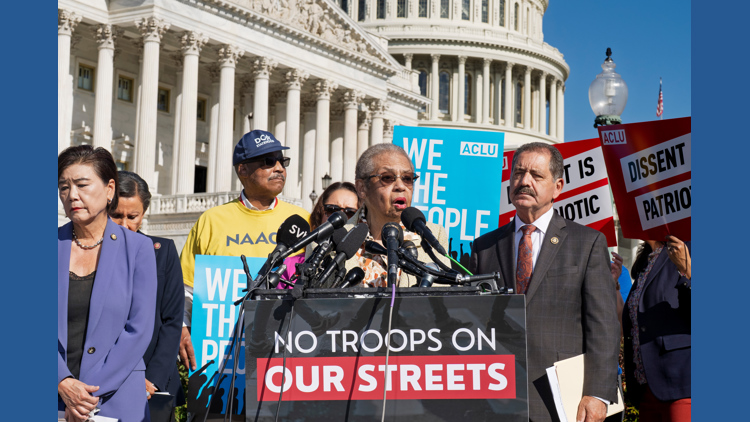The recent intervention by former President Donald Trump has ignited demands for Eleanor Holmes Norton to resign from her position as the District of Columbia’s delegate in Congress. Norton, who has represented the city for 18 terms, has faced renewed scrutiny following Trump’s comments regarding her effectiveness and the ongoing debate about D.C.’s status.
Norton has been a prominent advocate for the residents of the District of Columbia, pushing for greater autonomy and voting rights. Despite her long tenure, Trump’s remarks have raised questions about her accountability and the relevance of her role, especially as the political landscape shifts.
Calls for Change Sparked by Trump’s Comments
During a recent event, Trump criticized Norton, suggesting that she has failed to adequately represent the interests of D.C. residents. His comments were particularly pointed, reflecting a broader political strategy to undermine Democratic leaders in key positions. This has led to a wave of criticism from both sides of the political spectrum, with some calling for Norton to step aside.
The backlash has included statements from local leaders and organizations advocating for D.C. statehood. They argue that Norton’s leadership is essential in the ongoing fight for equality and representation in Congress. According to the Washington Post, several Democratic lawmakers have expressed their support for Norton, emphasizing her commitment to the D.C. community.
Opponents, however, contend that her long tenure has not resulted in significant progress towards achieving statehood or enhancing local governance. The debate reflects larger questions about the political representation of Washington, D.C., which has been a subject of contention for decades.
The Political Implications of Norton’s Position
Norton’s delegate status means she can participate in debates and committees but lacks full voting rights in the House of Representatives. This limitation has fueled arguments for D.C. statehood, a cause that has gained traction in recent years. With a population comparable to some U.S. states, many residents feel their voices are not adequately represented at the federal level.
In response to the calls for her resignation, Norton has defended her record, highlighting her advocacy for issues such as affordable housing, healthcare, and civil rights. She has also pointed to her role in various legislative successes that have benefited D.C. residents.
Despite her commitment, the pressure for change is palpable, especially as the political climate becomes increasingly polarized. As the debate over D.C.’s status continues, Norton’s future in Congress remains uncertain.
With the next congressional elections on the horizon, the outcome of this situation could significantly influence the political landscape of the District of Columbia and its quest for statehood. Whether Norton will withstand the pressure or decide to step back will likely depend on both public sentiment and her assessment of her effectiveness moving forward.
As the situation develops, it will be crucial to watch how these dynamics play out not only for Norton but also for the future of representation in Washington, D.C.







































































